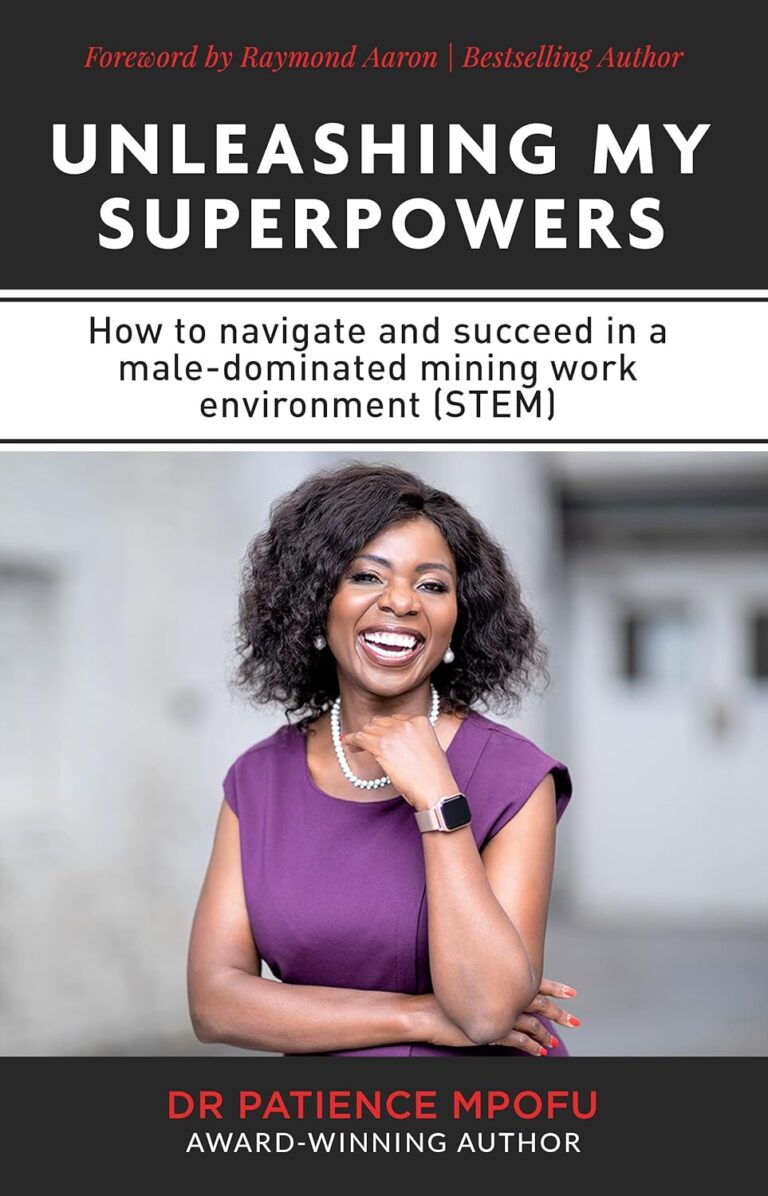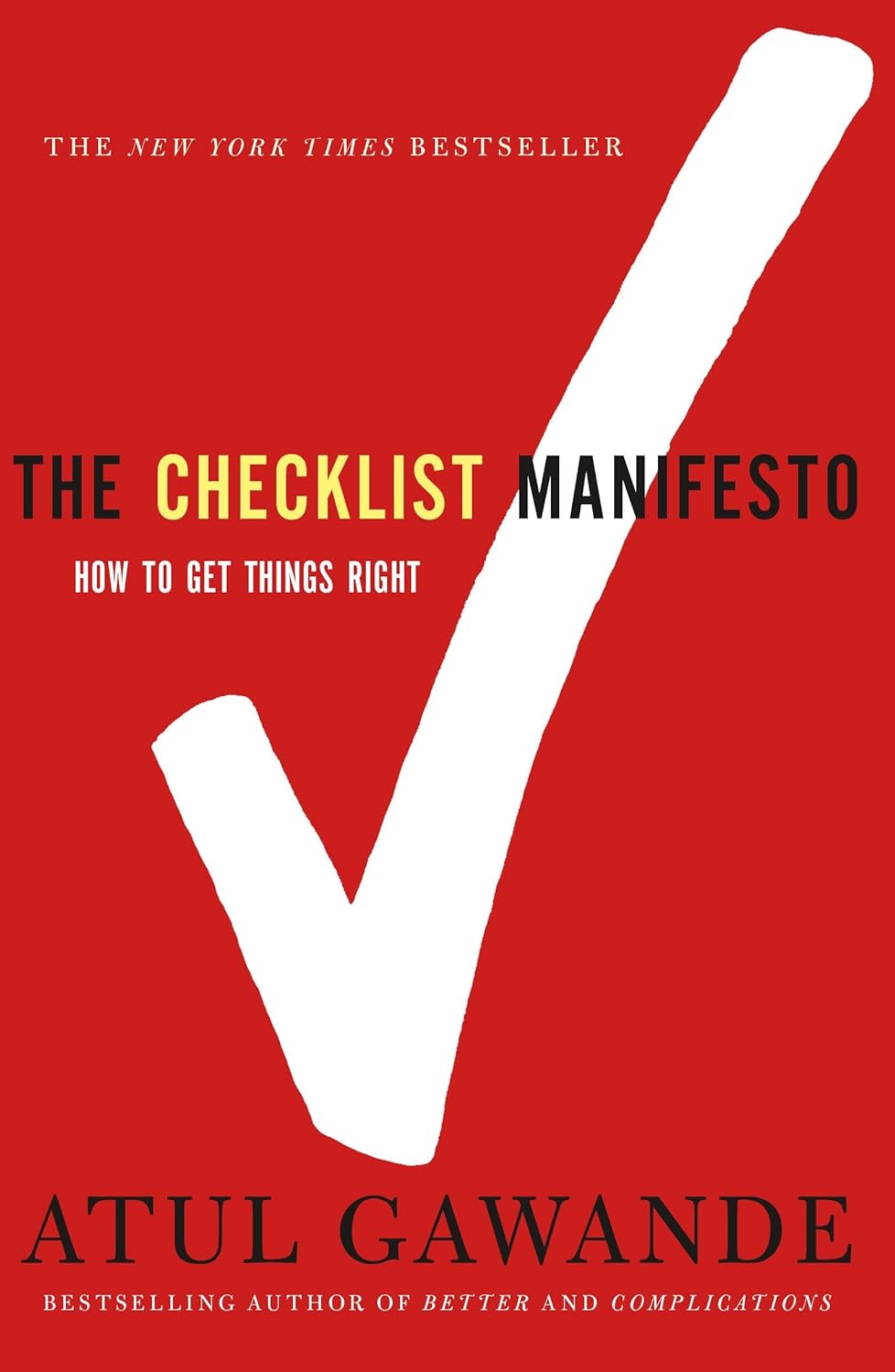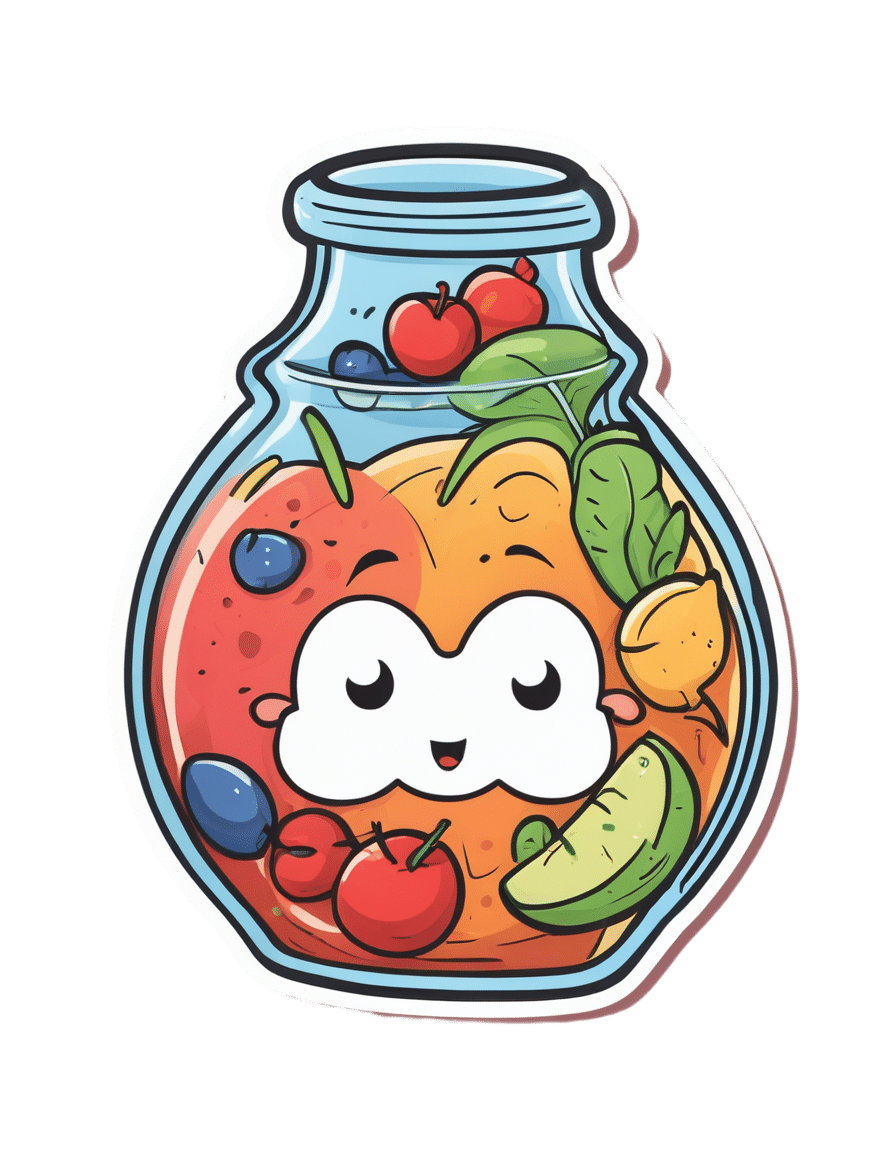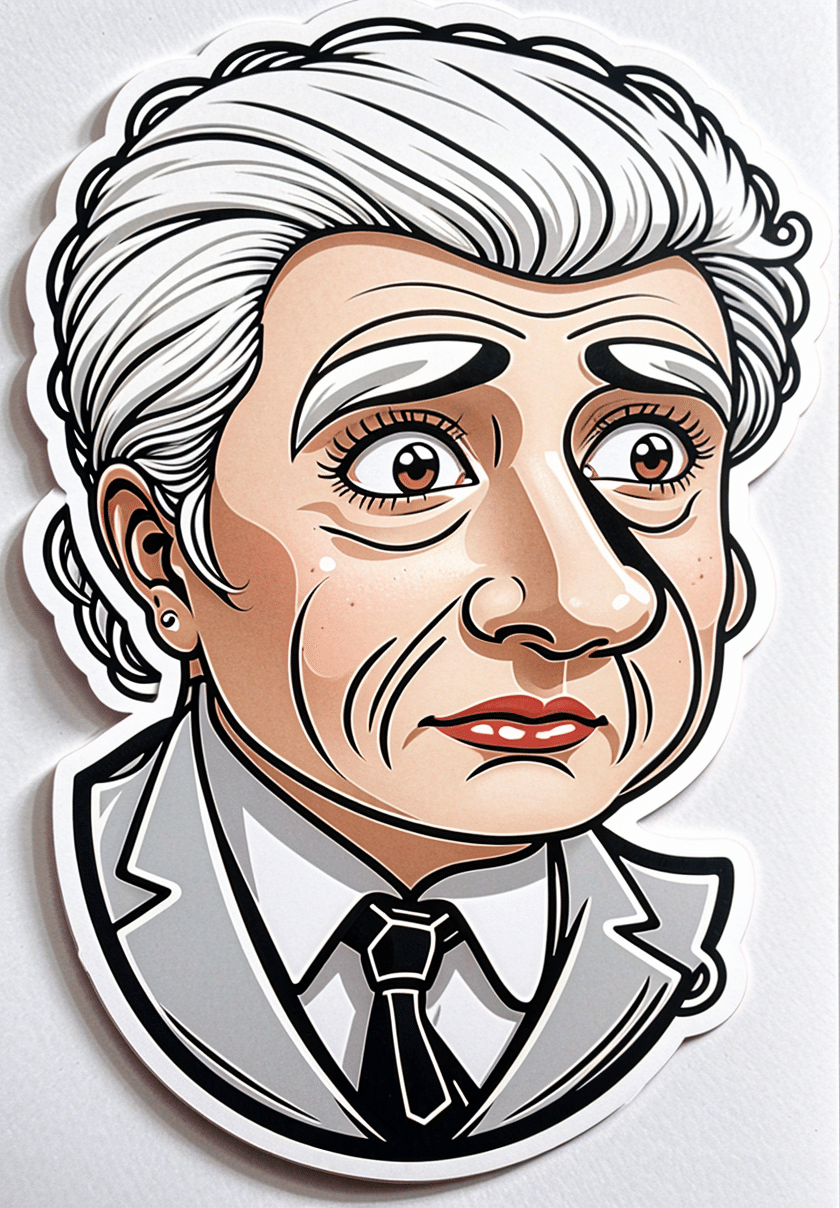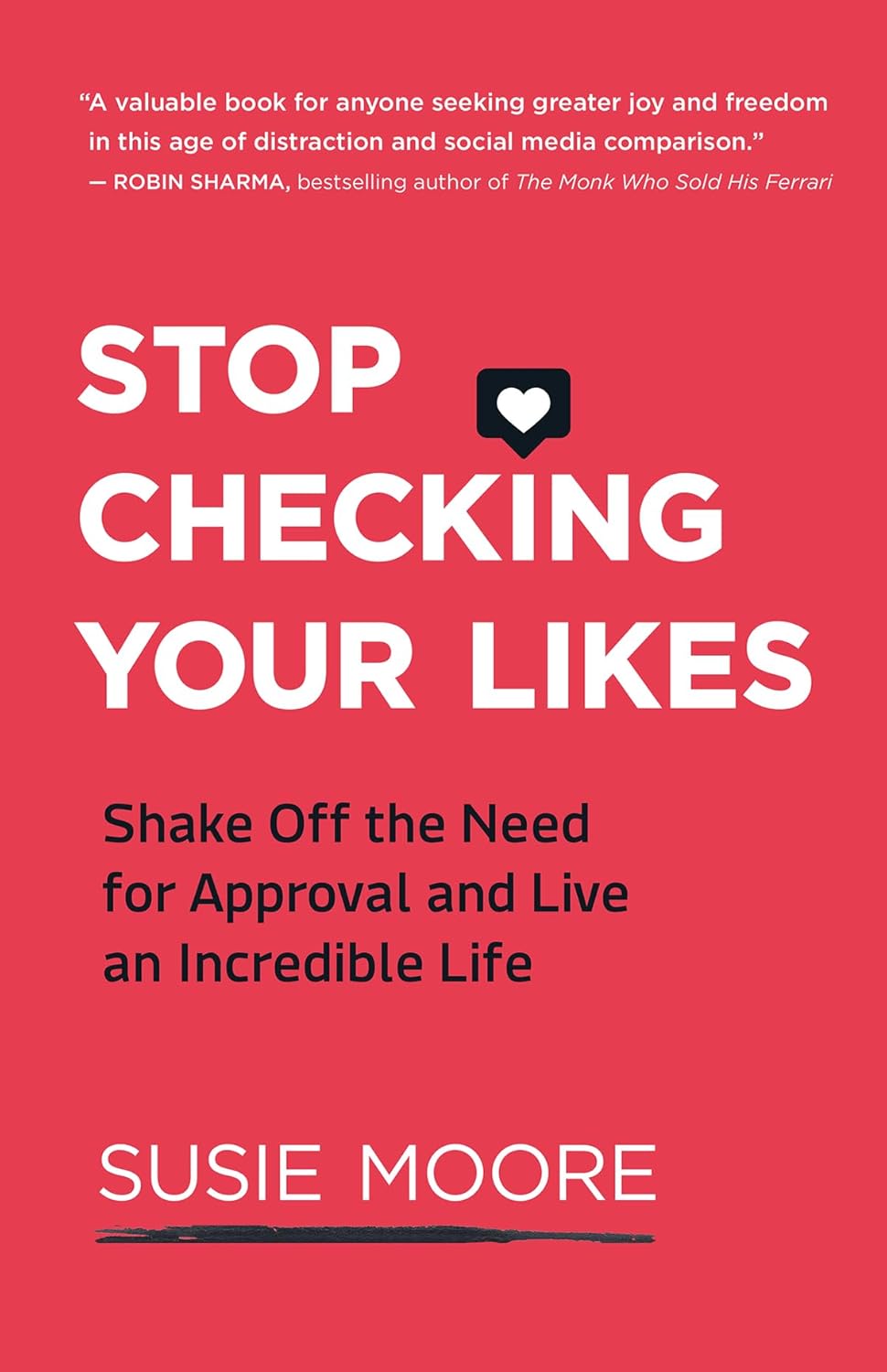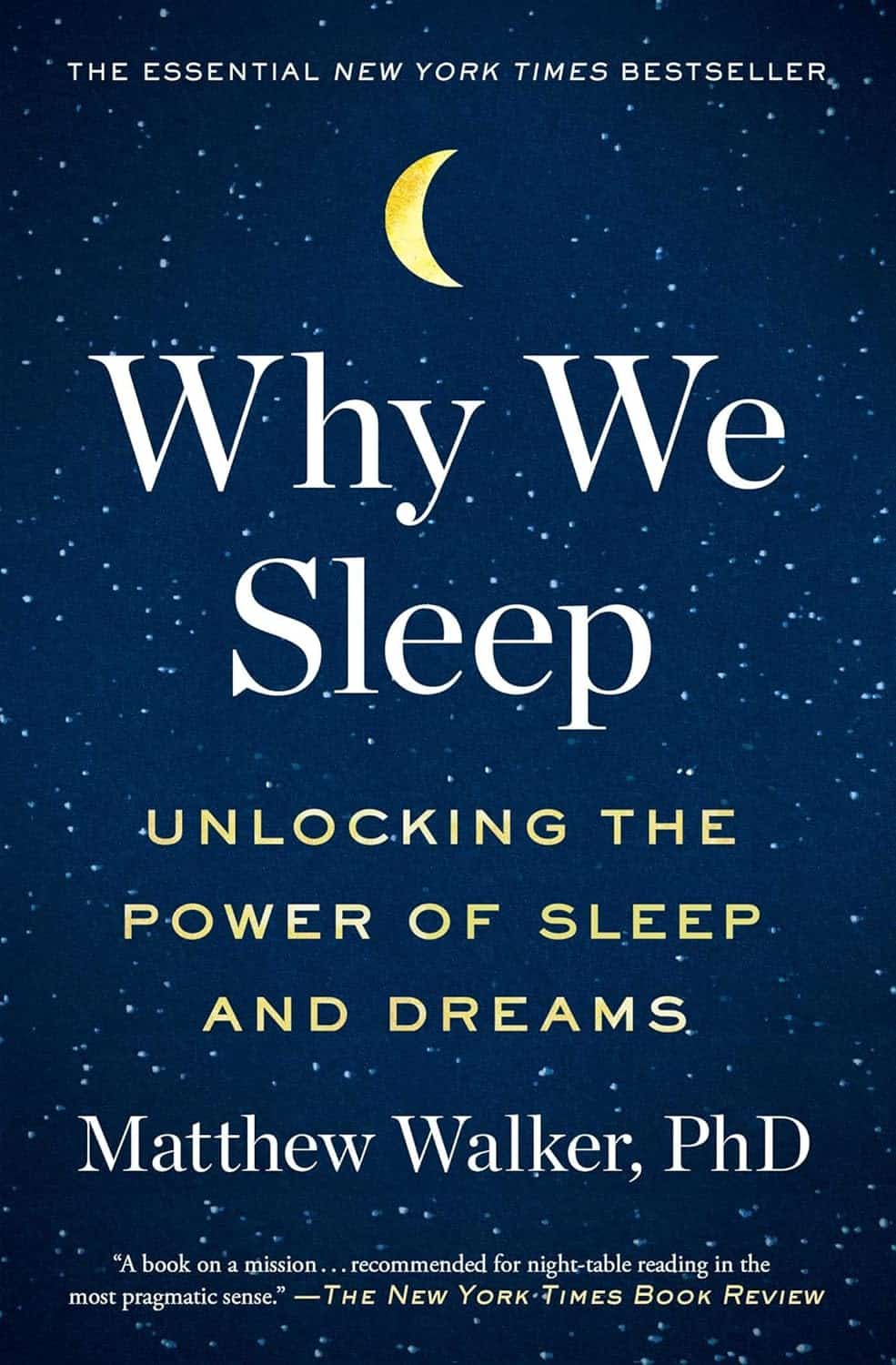
Why We Sleep – by Dr Matthew Walker
10almonds is reader-supported. We may, at no cost to you, receive a portion of sales if you purchase a product through a link in this article.
- We all know sleep is important.
- We all know that without it, we’ll suffer rapid cognitive decline.
- We all know approximately what we’re supposed to do to get good sleep.
So what does this book bring to the table? Mostly, deep understanding (written from the perspective of a career in sleep science) presented in such a way as to be applicable, by you, in your life. Stop sabotaging yourself before you even get out of your bed in the morning!
Hustle culture champions early mornings and late nights, and either or both of those might be difficult to avoid. But to make what you’re doing sustainable, you’re going to have to make some informed decisions about looking after your #1 asset—you!
Dr. Walker writes in a clear and accessible fashion, without skimping on the hard science, and always with practical application in mind. All in all, we can’t recommend this one enough.
Don’t Forget…
Did you arrive here from our newsletter? Don’t forget to return to the email to continue learning!
Recommended
Learn to Age Gracefully
Join the 98k+ American women taking control of their health & aging with our 100% free (and fun!) daily emails:
-
Is Fast Food Really All That Bad?
10almonds is reader-supported. We may, at no cost to you, receive a portion of sales if you purchase a product through a link in this article.
Yes, yes it is. However, most people misunderstand the nature of its badness, which is what causes problems. The biggest problem is not the acute effects of one afternoon’s burger and fries; the biggest problem is the gradual slide into regularly eating junk food, and the long-term effects of that habit as our body changes to accommodate it (of which, people tend to focus on subcutaneous fat gain as it’s usually the most visible, but that’s really the least of our problems).
Cumulative effects
There are, of course, immediate negative effects too, and they’re not without cause for concern. Because of the composition of most junk food, it will almost by definition result in immediate blood sugar spikes, rising insulin levels, and a feeling of fatigue not long afterwards.
- Within a week of regularly consuming junk food, gut bacteria will change, resulting in moderate cravings, as well as a tendency towards depression and anxiety. Mood swings are likely, as are the gastrointestinal woes associated with any gut microbiota change.
- Within two weeks, those effects will be greater, the cravings will increase, energy levels will plummet, and likely skin issues may start to show up (our skin mostly works on a 3-week replacement cycle; some things can show up in the skin more quickly or slowly than that, though).
- Within three weeks, the rest of our blood metrics (e.g. beyond blood sugar imbalances) will start to stray from safe zones. Increased LDL, decreased HDL, and the beginnings of higher cardiovascular disease risk and diabetes risk.
- Within a month, we will likely see the onset of non-alcoholic fatty liver disease, and chronic inflammation sets in, raising the risk of a lot of other diseases, especially immune disorders and cancer.
If that seems drastic, along the lines of “eat junk food for a month and get cancer”, well, it’s an elevated risk, not a scheduled diagnosis, but the body is constantly rebuilding itself, for better or for worse, and if we sabotage its efforts by consuming a poor diet, then it will be for worse.
The good news is: this works both ways, and we can get our body back on track in fairly short order too, by enjoying a healthier diet; our body will be thrilled to start repairing itself. And of course, all these effects, good and bad, are proportional to how well or badly we eat. There’s a difference between doing a “Supersize Me” month-long 100% junk food diet, and “merely” getting a junk food breakfast each day and eating healthily later.
In short, if your diet is only moderately bad, then you will only be moderately unwell.
For more on all of this, enjoy:
Click Here If The Embedded Video Doesn’t Load Automatically!
Want to learn more?
You might also like to read:
- Fix Chronic Fatigue & Regain Your Energy, By Science
- How To Unfatty A Fatty Liver
- How to Prevent (or Reduce) Inflammation
Take care!
Share This Post
-
The Checklist Manifesto – by Dr. Atul Gawande
10almonds is reader-supported. We may, at no cost to you, receive a portion of sales if you purchase a product through a link in this article.
Dr. Gawande, himself a general surgeon, uses checklists a lot. He is, unequivocally, an expert in his field. He “shouldn’t” need a checklist to tell him to do such things as “Check you have the correct patient”. But checklists are there as a safety net. And, famously, “safety regulations are written in blood”, after all.
And, who amongst us has never made such a “silly” error? From forgetting to turn the oven on, to forgetting to take the handbrake off, it takes only a momentary distraction to think we’ve done something we haven’t.
You may be wondering: why a whole book on this? Is it just many examples of the usefulness of checklists? Because I’m already sold on that, so, what else am I going to get out of it?
Dr. Gawande also explains in clear terms:
- How to optimize “all necessary steps” with “as few steps as possible”
- The important difference between read-do checklists and do-confirm checklists
- To what extent we should try to account for the unexpected
- How to improve compliance (i.e., making sure you actually use it, no matter how tempting it will be to go “yeah this is automatic for me now” and gloss over it)
- The role of checklists in teams, and in passing on knowledge
…and more.
Bottom line: if you’ve ever tried to make tea without putting the tea-leaves in the pot, this is the book that will help you avoid making more costly mistakes—whatever your area of activity or interest.
Click here to check out the Checklist Manifesto, and make fewer mistakes!
Share This Post
-
War in Ukraine affected wellbeing worldwide, but people’s speed of recovery depended on their personality
10almonds is reader-supported. We may, at no cost to you, receive a portion of sales if you purchase a product through a link in this article.
The war in Ukraine has had impacts around the world. Supply chains have been disrupted, the cost of living has soared and we’ve seen the fastest-growing refugee crisis since World War II. All of these are in addition to the devastating humanitarian and economic impacts within Ukraine.
Our international team was conducting a global study on wellbeing in the lead up to and after the Russian invasion. This provided a unique opportunity to examine the psychological impact of the outbreak of war.
As we explain in a new study published in Nature Communications, we learned the toll on people’s wellbeing was evident across nations, not just in Ukraine. These effects appear to have been temporary – at least for the average person.
But people with certain psychological vulnerabilities struggled to recover from the shock of the war.
Tracking wellbeing during the outbreak of war
People who took part in our study completed a rigorous “experience-sampling” protocol. Specifically, we asked them to report their momentary wellbeing four times per day for a whole month.
Data collection began in October 2021 and continued throughout 2022. So we had been tracking wellbeing around the world during the weeks surrounding the outbreak of war in February 2022.
We also collected measures of personality, along with various sociodemographic variables (including age, gender, political views). This enabled us to assess whether different people responded differently to the crisis. We could also compare these effects across countries.
Our analyses focused primarily on 1,341 participants living in 17 European countries, excluding Ukraine itself (44,894 experience-sampling reports in total). We also expanded these analyses to capture the experiences of 1,735 people living in 43 countries around the world (54,851 experience-sampling reports) – including in Australia.
A global dip in wellbeing
On February 24 2022, the day Russia invaded Ukraine, there was a sharp decline in wellbeing around the world. There was no decline in the month leading up to the outbreak of war, suggesting the change in wellbeing was not already occurring for some other reason.
However, there was a gradual increase in wellbeing during the month after the Russian invasion, suggestive of a “return to baseline” effect. Such effects are commonly reported in psychological research: situations and events that impact our wellbeing often (though not always) do so temporarily.
Unsurprisingly, people in Europe experienced a sharper dip in wellbeing compared to people living elsewhere around the world. Presumably the war was much more salient for those closest to the conflict, compared to those living on an entirely different continent.
Interestingly, day-to-day fluctuations in wellbeing mirrored the salience of the war on social media as events unfolded. Specifically, wellbeing was lower on days when there were more tweets mentioning Ukraine on Twitter/X.
Our results indicate that, on average, it took around two months for people to return to their baseline levels of wellbeing after the invasion.
Different people, different recoveries
There are strong links between our wellbeing and our individual personalities.
However, the dip in wellbeing following the Russian invasion was fairly uniform across individuals. None of the individual factors assessed in our study, including personality and sociodemographic factors, predicted people’s response to the outbreak of war.
On the other hand, personality did play a role in how quickly people recovered. Individual differences in people’s recovery were linked to a personality trait called “stability”. Stability is a broad dimension of personality that combines low neuroticism with high agreeableness and conscientiousness (three traits from the Big Five personality framework).
Stability is so named because it reflects the stability of one’s overall psychological functioning. This can be illustrated by breaking stability down into its three components:
- low neuroticism describes emotional stability. People low in this trait experience less intense negative emotions such as anxiety, fear or anger, in response to negative events
- high agreeableness describes social stability. People high in this trait are generally more cooperative, kind, and motivated to maintain social harmony
- high conscientiousness describes motivational stability. People high in this trait show more effective patterns of goal-directed self-regulation.
So, our data show that people with less stable personalities fared worse in terms of recovering from the impact the war in Ukraine had on wellbeing.
In a supplementary analysis, we found the effect of stability was driven specifically by neuroticism and agreeableness. The fact that people higher in neuroticism recovered more slowly accords with a wealth of research linking this trait with coping difficulties and poor mental health.
These effects of personality on recovery were stronger than those of sociodemographic factors, such as age, gender or political views, which were not statistically significant.
Overall, our findings suggest that people with certain psychological vulnerabilities will often struggle to recover from the shock of global events such as the outbreak of war in Ukraine.
Luke Smillie, Professor in Personality Psychology, The University of Melbourne
This article is republished from The Conversation under a Creative Commons license. Read the original article.
Share This Post
Related Posts
-
Revive and Maintain Metabolism
10almonds is reader-supported. We may, at no cost to you, receive a portion of sales if you purchase a product through a link in this article.
It’s Q&A Day at 10almonds!
Have a question or a request? You can always hit “reply” to any of our emails, or use the feedback widget at the bottom!
In cases where we’ve already covered something, we might link to what we wrote before, but will always be happy to revisit any of our topics again in the future too—there’s always more to say!
As ever: if the question/request can be answered briefly, we’ll do it here in our Q&A Thursday edition. If not, we’ll make a main feature of it shortly afterwards!
So, no question/request too big or small
❝How to jump start a inactive metabolism and keep it going? THANKYOU❞
The good news is, if you’re alive, your metabolism is active (it never stops!). So, it may just need perking up a little.
As for keeping it going, well, that’s what we’re here for! We’re all in favor of healthy longevity.
We’ll do a main feature soon on what we can do to influence our metabolism in either direction, but to give some quick notes here:
- A lot of our metabolism is influenced by genes and is unalterable (without modifying our genes, anyway)
- Metabolism isn’t just one thing—it’s many. And sometimes, parts of our metabolism can be much quicker or slower than others.
- When people talk about wanting a “faster metabolism”, they’re usually referring to fat-burning, and that’s just a small part of the picture, but we understand that it’s a focal point for many.
There really is enough material for a whole main feature on metabolic tweaks, though, so watch this space!
Don’t Forget…
Did you arrive here from our newsletter? Don’t forget to return to the email to continue learning!
Learn to Age Gracefully
Join the 98k+ American women taking control of their health & aging with our 100% free (and fun!) daily emails:
-
Top 10 Early Warning Signs Of Dementia
10almonds is reader-supported. We may, at no cost to you, receive a portion of sales if you purchase a product through a link in this article.
What’s a harmless momentary mind-blank, and what’s a potential warning sign of dementia? Dementia Careblazers, a dementia care organization, has input:
The signs
With the caveat that this is a list of potential warning signs, not a diagnostic tool, the 10 signs are:
- Memory loss: e.g. forgetting important or well-learned information, such as one’s home address
- Challenges in planning or solving problems: e.g. difficulty with tasks such as paying bills (for organizational rather than financial reasons), following recipes, or managing medications
- Difficulty completing familiar tasks: e.g. trouble remembering rules of a familiar game, or directions to a familiar place
- Confusion with place or time: e.g. forgetting where one is, or making mistakes with the date, season, or other time-related details. Note that anyone can be momentarily unsure of today’s date, but if someone thinks it’s 1995, probably something wrong is not quite right. Similarly, being wrong about who is the current national leader is often used as a test, too—assuming countries with enough political stability to not have five different national leaders in the past four years, including one who did not outlast a lettuce *side-eyeing the UK*
- Trouble understanding visual images and spatial relationships: e.g. increased clumsiness, difficulty parking, or bumping into objects
- New problems with speaking or writing: e.g. losing track in conversations, or struggling to find the right words
- Misplacing things: e.g. losing items and being unable to retrace one’s steps to find them
- Decreased or poor judgment: e.g. falling for scams, giving out too much information or money without investigating appropriately first
- Withdrawal from social activities or hobbies: e.g. losing interest in activities one used to enjoy or avoiding social interactions
- Changes in mood and personality: e.g. increased irritability, anxiety, or other noticeable changes in behavior and personality
For more information on each of these, enjoy:
Click Here If The Embedded Video Doesn’t Load Automatically!
Want to learn more?
You might also like to read:
Dementia: Spot The Signs (Because None Of Us Are Immune)
Take care!
Don’t Forget…
Did you arrive here from our newsletter? Don’t forget to return to the email to continue learning!
Learn to Age Gracefully
Join the 98k+ American women taking control of their health & aging with our 100% free (and fun!) daily emails:
-
Stop Checking Your Likes – by Susie Moore
10almonds is reader-supported. We may, at no cost to you, receive a portion of sales if you purchase a product through a link in this article.
You might think this one’s advice is summed up sufficiently by the title, that there’s no need for a book! But…
There’s a lot more to this than “stop comparing the worst out-takes of your life to someone else’s highlight reel”, and there’s a lot more to this than “just unplug”.
Instead, Susie Moore discusses the serious underlying real emotional considerations of the need for approval (and even just acceptance) by our community, as well the fear of missing out.
It’s not just about how social media is designed to hijack various parts of our brain, or how The Alogorithm™ is out to personally drag your soul through Hell for a few more clicks; it’s also about the human element that would exist even without that. Who remembers MySpace? No algorithm in those days, but oh the drama potential for those “top 8 friends” places. And if you think that kind of problem is just for young people 20 years ago, you have mercifully missed the drama that older generations can get into on Facebook.
Along with the litany of evil, though, Moore also gives practical advice on how to overcome those things, how to “see the world through comedy-colored glasses”, how to ask “what’s missing, really?”, and how to make your social media experience work for you, rather than it merely using you as fuel. ← link is to our own related article!
Bottom line: if social media sucks a lot of your time, there may be more to it than just “social media sucks in general”, and there are ways to meet your emotional needs without playing by corporations’ rules to do so.
Click here to check out Stop Checking Your Likes, and breathe easy!
Don’t Forget…
Did you arrive here from our newsletter? Don’t forget to return to the email to continue learning!
Learn to Age Gracefully
Join the 98k+ American women taking control of their health & aging with our 100% free (and fun!) daily emails:

